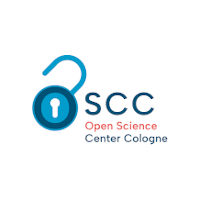Glossary
Citizen Science
"Citizen science describes the engagement of people in scientific processes who are not tied to institutions in that field of science. Participation can range from the short-term collection of data to the intensive use of leisure time in order to delve deeper into a research topic together with scientists and/or other volunteers. Although many volunteer scientists do have a university degree, this is not a prerequisite for participating in research projects. However, it is important that scientific standards are adhered to. This pertains especially to transparency with regard to the data collection methodology and the open discussion of the results." (Source: Green Paper. Citizen Science Strategy 2020 for Germany, p. 13: https://www.buergerschaffenwissen.de/sites/default/files/assets/dokumente/gewiss_cs_strategy_englisch.pdf)
Research Information System
The Research Information System (FIS) is used for digital research reporting. According to a nationwide uniform data standard, the current status of the research activities and achievements of all scientists at the UoC is permanently maintained and made visible. See also: https://ris.uni-koeln.de/en/
Public Domain
Works in which there are no copyrights are considered to be in the public domain. This can be due to the fact that the copyright protection periods have expired or that the required level of creation for copyright protection has not been reached. By granting a "Creative Commons Zero" license (also CC0 - public domain), the use of copyrighted works can also be released without further conditions. See also: https://irights-info.translate.goog/artikel/gemeinfreiheit-wie-frei-ist-frei/29619?_x_tr_sl=de&_x_tr_tl=en&_x_tr_hl=en
FAIR Principles
Guiding principles for the sustainable handling of research data, according to which the data should be permanently findable, accessible, interoperable and reusable. German-language explanations of the principles can be found here: https://blogs.tib.eu/wp/tib/2017/09/12/die-fair-data-prinzipien-fuer-forschungsdaten/
Metadata
Metadata is structured and ideally standardized data that contains information about characteristics of other data (administrative, descriptive, or technical metainformation).
Open Licenses
Open licenses allow extensive re-use of works of all kinds. In the Creative Commons model, these are the CC0, CC BY and CC BY-SA licenses. See also: https://creativecommons.org/licenses/?lang=de">https://creativecommons.org/licenses/?lang=de
Open Innovation
Open Innovation promotes the strategic opening and cooperation of science and business through knowledge and technology transfer based on a business model implementing intellectual property.
Open Peer Review
In order to address the criticism of the process of quality assurance of scientific publications through peer review (double-blind review) and to make the process more transparent, models for open, online review and open handling of the identity of the reviewers were developed.
Preregistration
Even before data analysis begins, the research plan for a scientific study (research questions, hypotheses, research design, variables, etc.) is written up and published on appropriate platforms (e.g., Open Science Framework).
Preprint
The pre-publication of a research report prior to the review process of a journal or publisher in order to accelerate scientific communication is now also advocated by major publishers. However, it is advisable to carefully check the respective publisher policies.
Registered Report
Even before data collection, the research question and planned methodology are published and subjected to a peer review process. This honors best practices and eliminates questionable research methods. For a database of journals that accept these reports, see: https://www.cos.io/initiatives/registered-reports
Repository
Trusted, digital (long-term) archive and, where appropriate, open access publication outlet for research results and/or research data.
